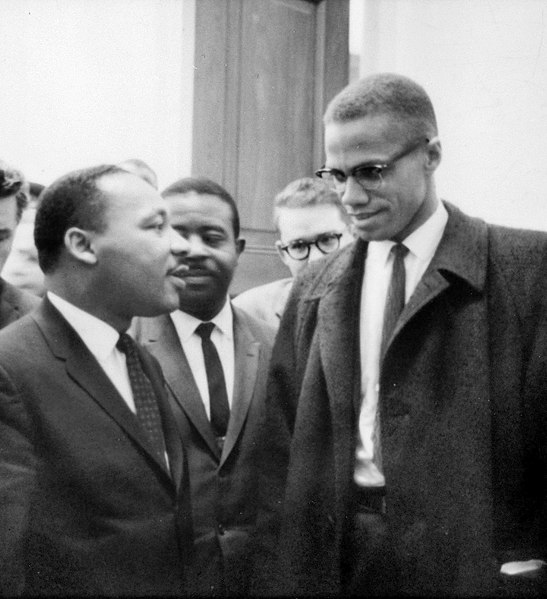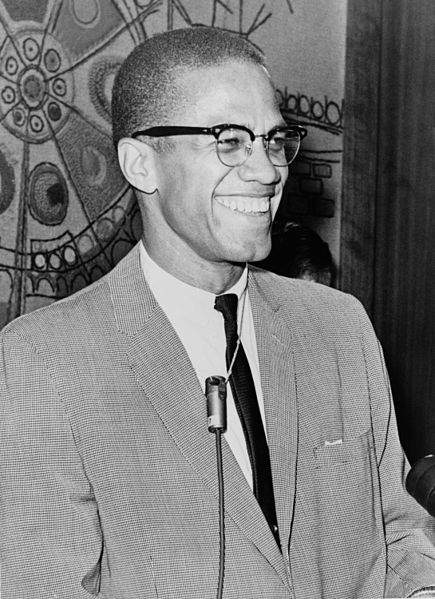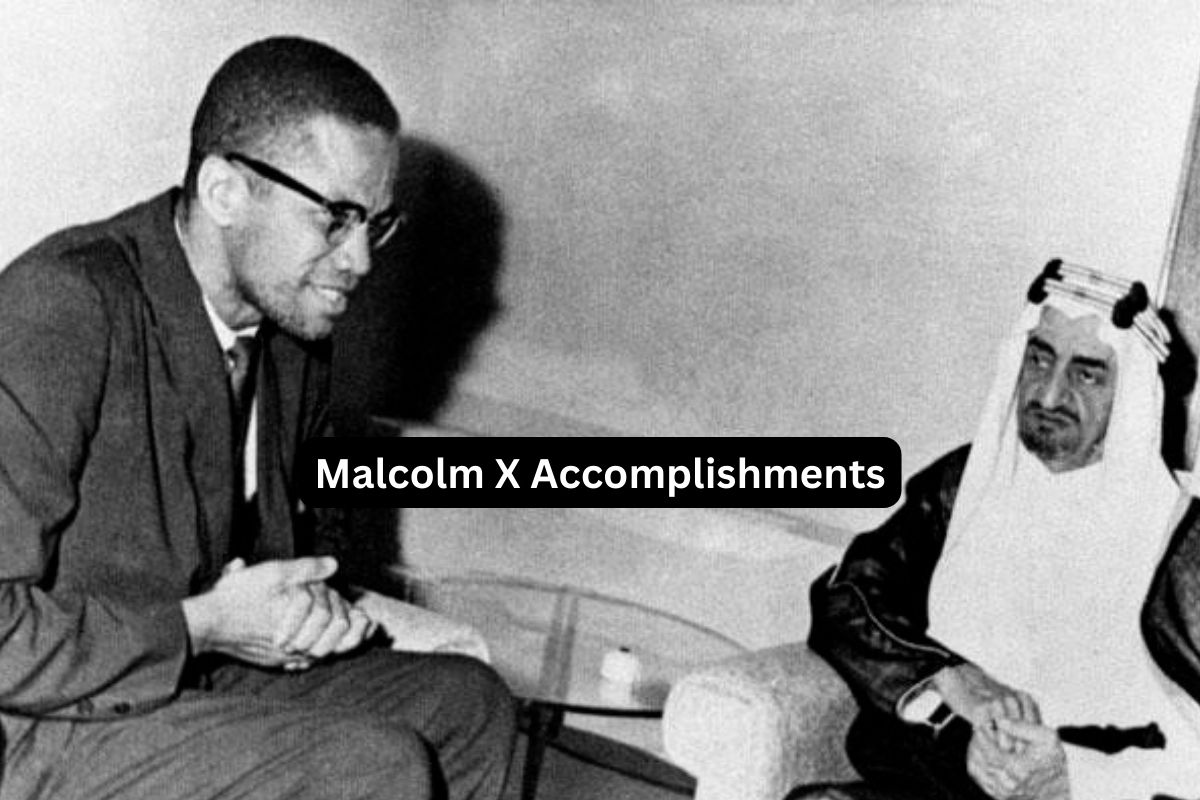Malcolm X was a prominent figure in the civil rights movement of the 1960s, advocating for the rights and empowerment of African Americans. His accomplishments and contributions were significant in shaping the fight against racial inequality.
Malcolm X co-founded the Organization of Afro-American Unity, emphasized the principles of Black nationalism and self-determination, and raised awareness about Islam.
Known for his powerful speeches, he inspired countless individuals to challenge systemic racism and work towards justice. Malcolm X’s legacy continues to influence activism, community empowerment, and the pursuit of equality to this day.
Accomplishments of Malcolm X
1. Civil rights activism
Malcolm X dedicated his life to fighting for civil rights and equality for African Americans. He actively participated in protests, demonstrations, and grassroots movements aimed at ending racial segregation and discrimination.
Also Read: Malcolm X Timeline
He was known for his passionate speeches and his unwavering commitment to achieving justice and equal rights for African Americans.

2. Co-founding the Organization of Afro-American Unity
In 1964, Malcolm X established the Organization of Afro-American Unity (OAAU) with the goal of unifying African Americans and promoting their political, economic, and social empowerment.
Also Read: Malcolm X Facts
The OAAU sought to address issues such as police brutality, unequal access to education and employment, and the disenfranchisement of African Americans. It aimed to provide a platform for African Americans to come together, organize, and work towards common goals.
3. Advocacy for Black nationalism
Malcolm X advocated for the concept of Black nationalism, which called for African Americans to embrace their cultural heritage, history, and identity. He believed in the importance of establishing a sense of unity and self-reliance within the Black community.
Malcolm X argued that Black people should have control over their own institutions and resources, advocating for economic independence and political autonomy. He viewed Black nationalism as a means to combat systemic racism and to uplift and empower African Americans.
4. Promoting self-determination and self-defense
Malcolm X emphasized the need for African Americans to take control of their own destinies and assert their rights through self-determination.
He believed that African Americans should rely on their own efforts and resources to improve their socio-economic conditions, rather than depending on the goodwill of others.
Additionally, Malcolm X advocated for self-defense as a means of protecting the African American community against violence and oppression. He argued that African Americans had the right to defend themselves when confronted with systemic racism and physical aggression.
5. Raising awareness about Islam
As a minister and spokesperson for the Nation of Islam, Malcolm X played a crucial role in introducing Islam to a wider audience, particularly among African Americans.
He helped raise awareness about the teachings of the religion, challenging misconceptions and stereotypes. Malcolm X highlighted Islam’s principles of equality, justice, and unity, which resonated with many African Americans seeking spiritual and ideological alternatives to oppressive systems.
His advocacy for Islam provided a pathway for African Americans to explore their faith and cultural heritage while simultaneously advocating for civil rights.

6. Powerful and inspirational speeches
Malcolm X was renowned for his ability to captivate audiences through his powerful speeches. He possessed a charismatic presence and a compelling delivery style that drew people in. His speeches addressed a range of pressing issues, including racial inequality, social injustice, and the struggle for human rights.
Malcolm X’s words were often stirring, urging listeners to take action, challenge oppressive systems, and strive for a better future. His speeches continue to inspire individuals around the world, and his legacy as an influential orator remains significant.
7. Emphasizing Pan-Africanism and global solidarity
Malcolm X recognized the importance of Pan-Africanism, which called for African people worldwide to unite in their common struggle against colonialism, racism, and oppression.
He emphasized the need for African Americans to connect with their African heritage, culture, and history.
Malcolm X believed that by fostering a sense of global solidarity among marginalized communities, they could amplify their collective strength and advance the fight for justice and equality on an international scale.
8. Autobiography and legacy
Malcolm X’s autobiography, “The Autobiography of Malcolm X” (co-written with Alex Haley), is a seminal work that chronicles his life and ideological transformation.
The book continues to have a profound impact, as it offers insights into the experiences of African Americans during the civil rights era and serves as an inspiration for many.
Malcolm X’s autobiography has become an enduring testament to his commitment to justice, self-discovery, and personal growth, leaving a lasting legacy that continues to shape social and political discourse.
9. Empowering African American communities
Malcolm X strongly advocated for the empowerment of African American communities through education, economic self-sufficiency, and political engagement. He encouraged African Americans to support and establish their own businesses, schools, and cultural institutions.
Malcolm X emphasized the importance of economic independence as a means to uplift and strengthen the Black community. He also urged African Americans to exercise their voting rights and engage in political activism to challenge systemic injustices and promote representation.
10. Challenging mainstream media narratives
Malcolm X was highly critical of the mainstream media’s portrayal of African Americans, which often perpetuated negative stereotypes and reinforced systemic racism.
He sought to challenge these narratives by advocating for the creation and support of black-owned media outlets.
Malcolm X believed in the power of alternative voices and platforms to provide more accurate and diverse representations of African American experiences. By challenging mainstream media narratives, he aimed to reshape public perceptions and bring attention to the realities and aspirations of African Americans.
